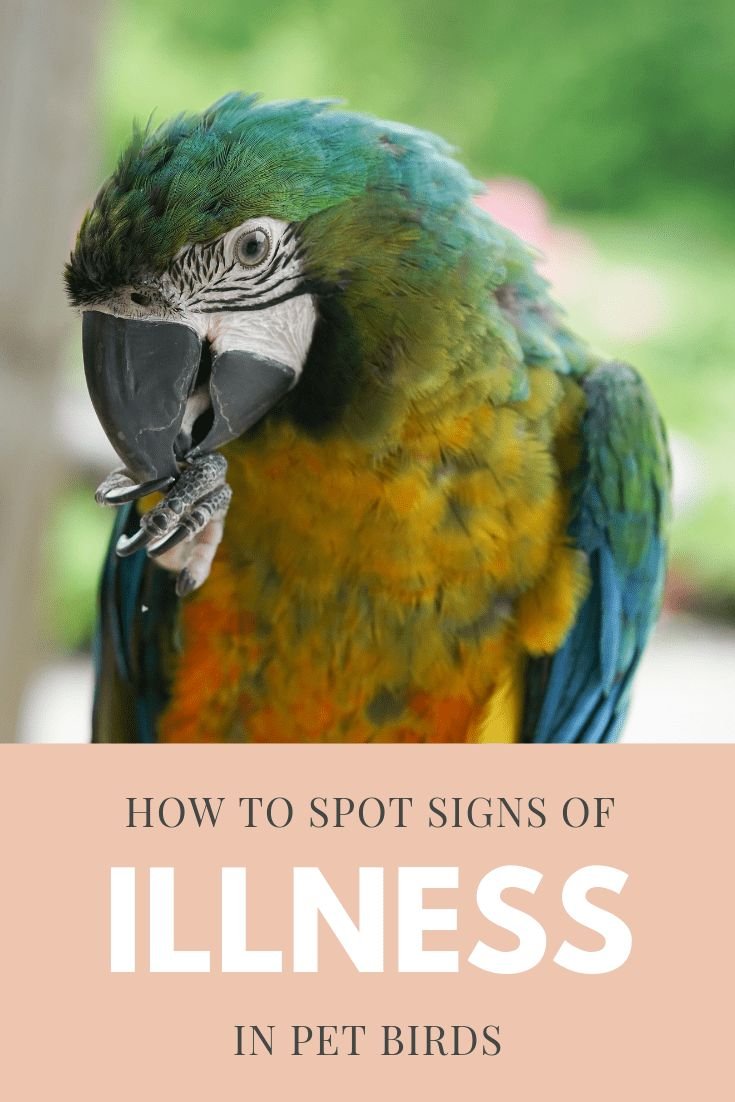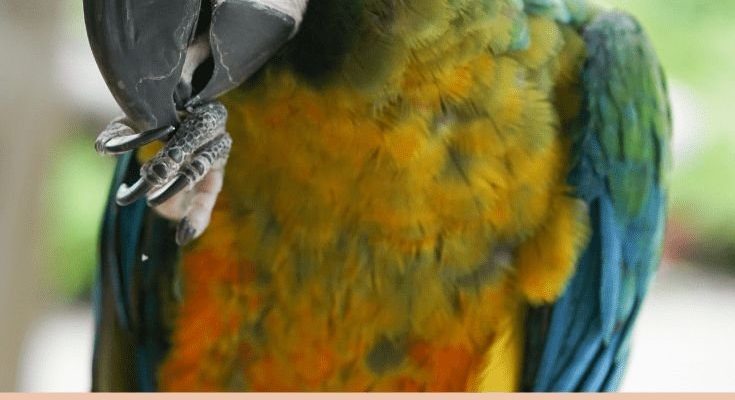
Think of it like watching for a friend’s cues when they’re feeling down. You might notice changes in their behavior, eating habits, or even their energy levels. These little changes can be significant and might indicate that it’s time to call the vet. In this article, I’ll guide you through the common signs that something might be off with your macaw and help you decide when it’s time to reach out for professional help.
Changes In Appetite: What To Watch For
One of the first signs that something might be wrong with your macaw is a change in their appetite. Just like us, birds can have days when they’re not super hungry, but if this lasts more than a day or two, it’s worth paying attention to. Macaws are typically enthusiastic eaters, so a noticeable drop in their food intake can indicate underlying issues.
You might notice your macaw picking at their food or leaving it untouched altogether. This could be because of dental issues, stress, or even sickness. If your bird suddenly has a decreased interest in their favorite treats, like fresh fruits or nuts, it’s time for a closer inspection.
Additionally, keep an eye on their water intake. Are they drinking less or more than usual? Both can signal health problems. If you see these changes, a quick check-in with your vet can give you peace of mind or help catch a problem early.
Behavioral Changes: What Else To Notice
Behavior can be one of the most telling signs of a macaw’s health. If your playful, chatty bird suddenly becomes withdrawn or irritable, it might be time to take note. Macaws are social creatures, so if they start isolating themselves or don’t interact with you as they usually do, it could signal something’s off.
For example, if your macaw is usually a chatterbox but suddenly stops vocalizing, or if they seem less interested in play, don’t ignore these changes. It might be as simple as stress from a new environment, or it might be something more serious like illness.
Moreover, watch for signs of excessive preening or feather plucking. While grooming is normal, if it seems obsessive or if you notice bald patches, this could indicate stress or other health issues. Remember, macaws are incredibly expressive; so when they start acting differently, it’s worth investigating further.
Physical Signs: What To Look For
Sometimes, the signs of illness in macaws are more straightforward and visible. You should keep an eye out for changes in their feathers or skin. Dull or ragged feathers, changes in coloration, or patches of missing feathers can indicate various health problems.
Also, don’t forget to check their droppings. Healthy droppings are typically firm and colorful, while any change in consistency or color—such as watery stools or blood—requires immediate attention. You might be thinking, “Yikes, that’s a bit gross!” but trust me, it’s one of the best ways you can track your bird’s health.
Another red flag? A runny or blocked nose, or swelling around the eyes or beak. These physical changes are important indicators that your macaw might be unwell. Remember, the sooner you catch these signs, the quicker you can get your bird the help they need.
Respiratory Issues: Signs To Be Aware Of
Respiratory infections are common in birds like macaws, and they can escalate quickly if not treated. You might notice your macaw breathing more heavily than usual or making unusual sounds like wheezing or clicking.
If your bird exhibits open-mouth breathing, this is particularly concerning and signals an urgent need for veterinary attention. Sometimes, you might even see labored movements or fluffed-up feathers as they struggle to breathe.
A healthy macaw should breathe quietly and comfortably. If you hear any unusual sounds, or if their breathing appears labored, it’s definitely time to pick up the phone and call your vet.
When To Call The Vet: Guidelines To Follow
So, how do you know when it’s the right time to seek help? If you notice any sudden or severe changes in your macaw’s behavior, appetite, or physical condition, it’s best to err on the side of caution.
Here’s a quick guide:
- If your macaw is not eating or drinking for more than 24 hours.
- If they show signs of distress, like labored breathing or excessive lethargy.
- If you see significant changes in their droppings.
- If you notice unusual feather conditions or skin problems.
- If they develop a sudden change in behavior, like aggression or withdrawal.
When in doubt, trust your instincts. You know your macaw best, and if something feels off, it’s always a good idea to consult a vet.
Preventive Care: Keeping Your Macaw Healthy
Just like with humans, prevention is key to keeping your macaw healthy. Regular vet check-ups can catch potential issues before they escalate into serious problems. These visits often include check-ups on diet, feather condition, and overall behavior.
Creating a stress-free environment is crucial, too. Ensure your macaw has plenty of mental stimulation from toys, interaction, and even a comfortable space to retreat to when they need alone time. A happy macaw is a healthy macaw.
Also, pay attention to their diet. A balanced diet rich in fruits, vegetables, and high-quality pellets can help prevent many health issues. Remember, a happy, well-fed macaw is less likely to experience health problems!
Final Thoughts
Your macaw is more than just a pet; they’re a part of your family. Understanding the signs of illness in macaws—and knowing when to call the vet—can make all the difference in keeping your feathered friend healthy and happy.
Stay observant, and don’t hesitate to seek help if things seem off. After all, a little bit of vigilance goes a long way in ensuring that your vibrant companion remains by your side for years to come. Trust your instincts, maintain regular vet visits, and provide a loving, stress-free home—it’s the best recipe for a happy, healthy macaw!

